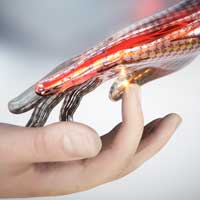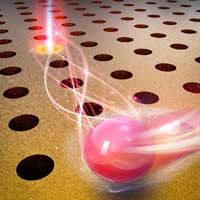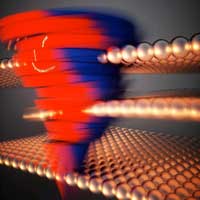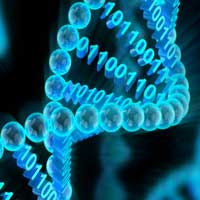 Researchers have developed electronic artificial skin that reacts to pain just like real skin, opening the way to better prosthetics, smarter robotics and non-invasive alternatives to skin grafts.
Researchers have developed electronic artificial skin that reacts to pain just like real skin, opening the way to better prosthetics, smarter robotics and non-invasive alternatives to skin grafts.
Tuesday, September 1, 2020
New electronic skin can react to pain like human skin
 Researchers have developed electronic artificial skin that reacts to pain just like real skin, opening the way to better prosthetics, smarter robotics and non-invasive alternatives to skin grafts.
Researchers have developed electronic artificial skin that reacts to pain just like real skin, opening the way to better prosthetics, smarter robotics and non-invasive alternatives to skin grafts.
Optical tweezers to trap molecules on the nanoscale
 Scientists have developed a strategy that enables them to tweeze extremely small objects without exposing them to high-intensity light or heat that can damage a molecule's function.
Scientists have developed a strategy that enables them to tweeze extremely small objects without exposing them to high-intensity light or heat that can damage a molecule's function.
New advancement in nanophotonics has the potential to improve light-based biosensors
 Researchers find path to create nanoscale devices that have much narrower spectral responses.
Researchers find path to create nanoscale devices that have much narrower spectral responses.
Memory in a metal, enabled by quantum geometry
 Researchers have invented a new data storage method: They make odd numbered layers slide relative to even-number layers in tungsten ditelluride, which is only 3nm thick. The arrangement of these atomic layers represents 0 and 1 for data storage.
Researchers have invented a new data storage method: They make odd numbered layers slide relative to even-number layers in tungsten ditelluride, which is only 3nm thick. The arrangement of these atomic layers represents 0 and 1 for data storage.
'Biohackers' TV series stored on synthetic DNA
 Scientists have developed a method that permits the stable storage of large quantities of data on DNA for over 1000 years.
Scientists have developed a method that permits the stable storage of large quantities of data on DNA for over 1000 years.
Your paper notebook could become your next tablet
 Researchers hope their new technology can help transform paper sheets from a notebook into a music player interface and make food packaging interactive.
Researchers hope their new technology can help transform paper sheets from a notebook into a music player interface and make food packaging interactive.
Subscribe to:
Comments (Atom)
